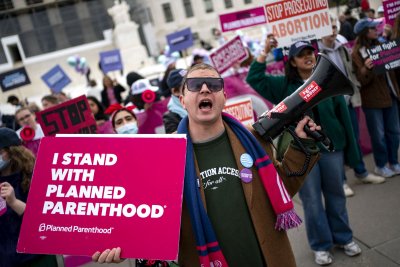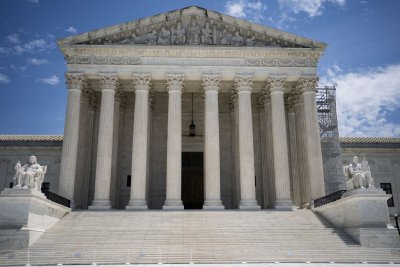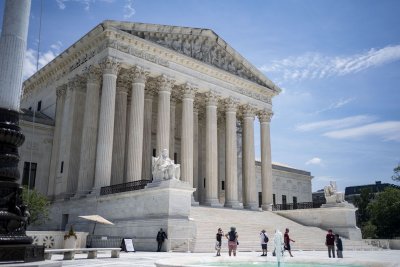Supreme Court: Planned Parenthood in South Carolina can’t sue over Medicaid exclusion

June 26 (UPI) — The U.S. Supreme Court ruled Thursday that Planned Parenthood South Atlantic, the nonprofit’s arm that covers South Carolina, can’t sue the state over its closing off of the nonprofit’s Medicaid funding because it provides abortions.
“The U.S. Supreme Court has affirmed our right to exclude abortion providers from receiving taxpayer dollars,” wrote Gov. Henry McMaster, R-S.C., in an X post Thursday.
“Seven years ago, we took a stand to protect the sanctity of life and defend South Carolina’s authority and values,” he added, “and today, we are finally victorious.”
The 6-3 decision followed the court’s ideological makeup, with the three liberal judges in dissent while the six conservative judges ruled in support.
The court’s syllabus noted 42 U.S. Code Section 1983, which allows private parties to file suit against state officials who violate their Constitutional rights. However, in the opinion of the Court, which was delivered by Justice Neil Gorsuch, he wrote that “federal statutes do not automatically confer [Section 1983]-enforceable ‘rights.'”
“This is especially true of spending-power statutes like Medicaid, where ‘the typical remedy’ for violations is federal funding termination, not private suits,” he continued.
“No court has addressed whether that Medicare provision creates [Section 1983] rights,” he later wrote.
Justice Ketanji Brown Jackson wrote the dissent, and she also referred to Section 1983.
“South Carolina asks us to hollow out that provision so that the State can evade liability for violating the rights of its Medicaid recipients to choose their own doctors,” Jackson stated. “The Court abides South Carolina’s request. I would not.”
South Carolina had announced in July of 2018 that Planned Parenthood could no longer participate in the state’s Medicaid program, under a state law that prohibits the use of its own public funding for abortions.
The order further affected patients in that it had the effect of also blocking Planned Parenthood patients from receiving services such as breast exams, sexually transmitted diseases and contraception.
Planned Parenthood South Atlantic announced on its social media platform Thursday that, “Today, the U.S. Supreme Court decided that people using Medicaid in South Carolina no longer have the freedom to choose Planned Parenthood South Atlantic as their sexual and reproductive health care provider.”
“If you are a patient using Medicaid, keep your appointment,” the post continued. “We’re still here to provide you with the low or no cost care you deserve.”
The post concluded with “We’re in this with you, and we aren’t going anywhere.”




